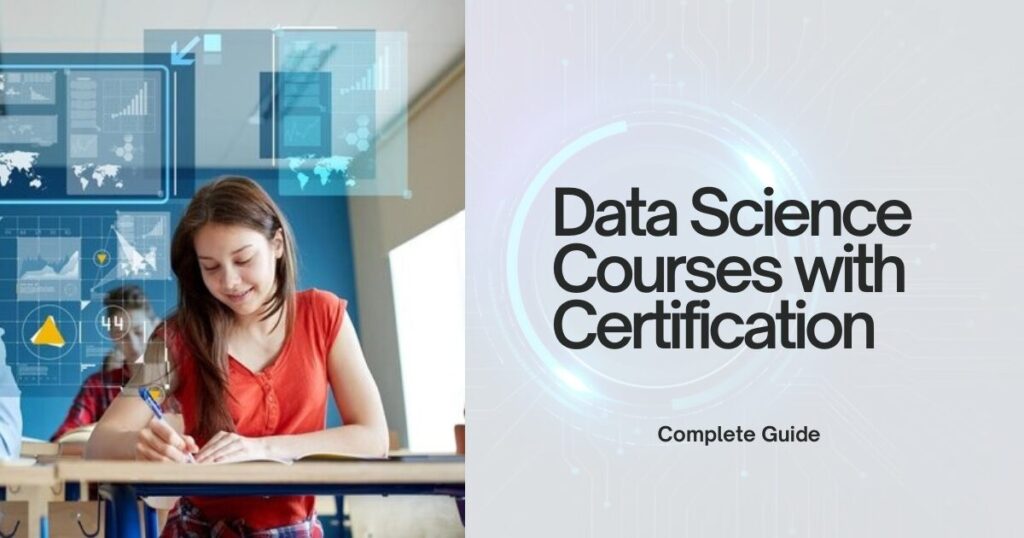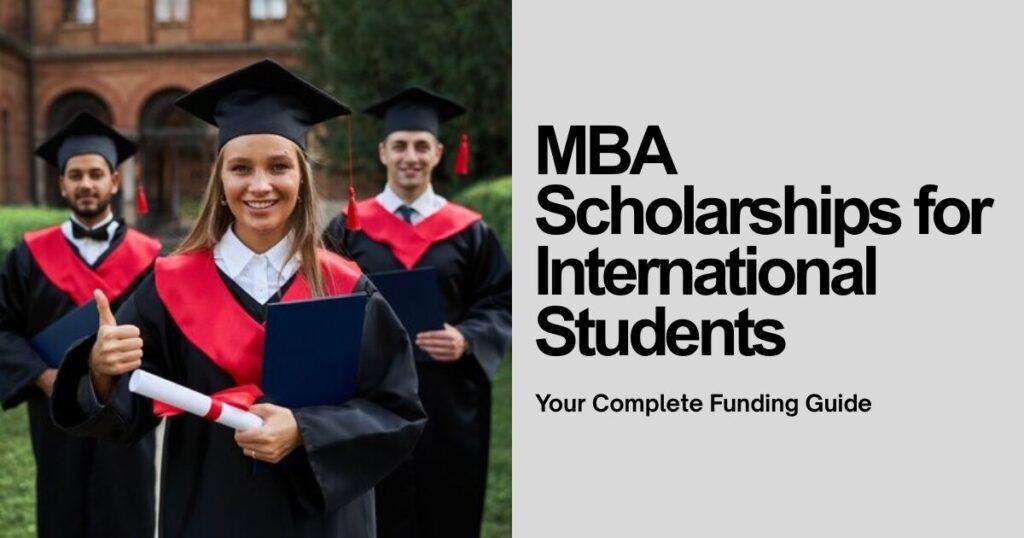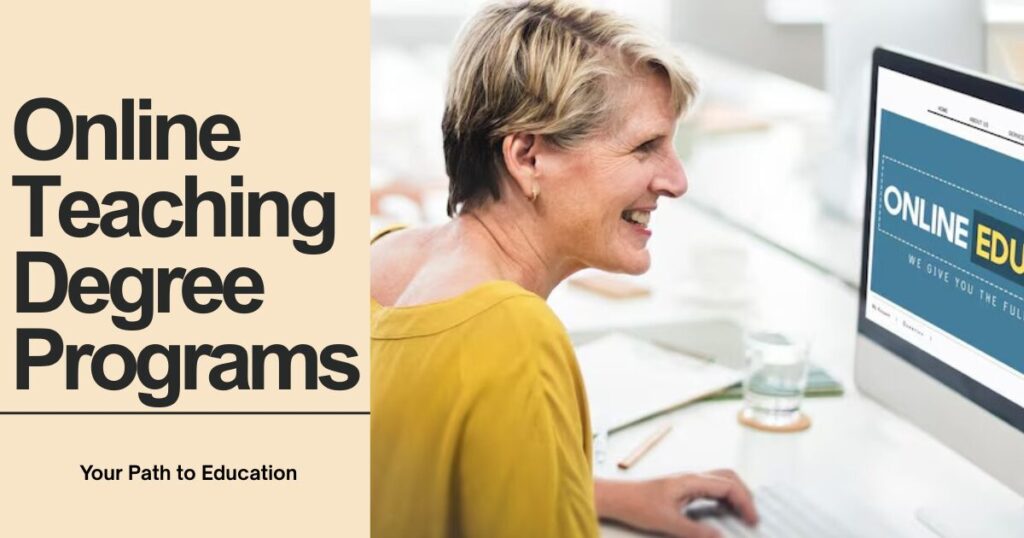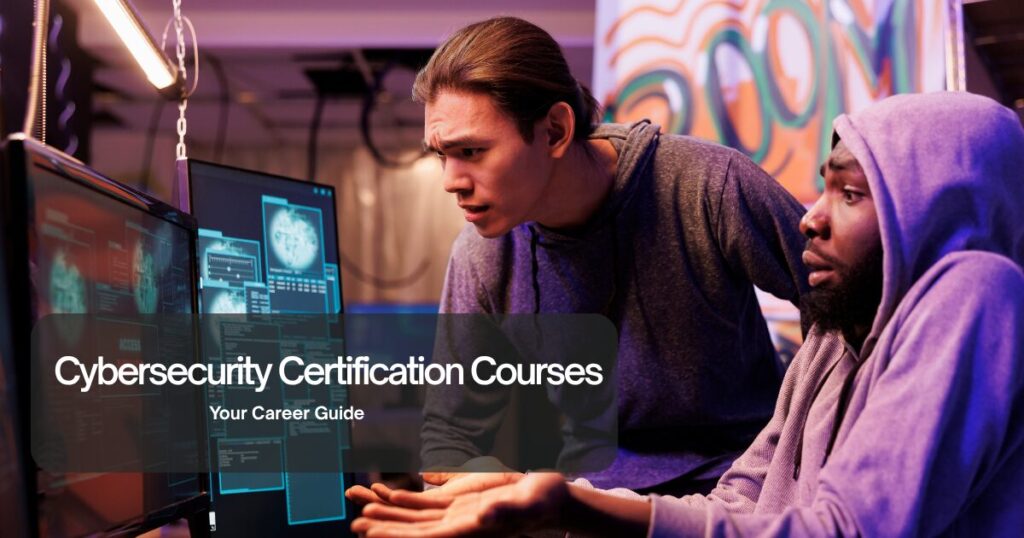
Top accredited online MBA programs without GMAT requirements include Indiana University Kelley Direct, University of North Carolina Kenan-Flagler, Arizona State University, and Syracuse University. Of 342 ranked programs, 133 require neither GMAT nor GRE scores. These AACSB-accredited programs accept professional work experience instead of test scores, offer financial aid packages averaging $15,000-$42,000 annually, and allow completion in 15-36 months while working full-time.
The GMAT exam costs $275 to $300, requires three hours of testing, and demands months of preparation time you don’t have while working full-time. For many professionals ready to advance their careers, that standardized test becomes the biggest barrier to earning an MBA—not their qualifications, work ethic, or leadership potential.
Business schools recognize this reality. Among 342 ranked online MBA programs that submitted information to U.S. News, 133 reported that they typically require neither a GMAT nor GRE score from applicants, and another 112 said test scores aren’t used in admissions. These programs evaluate candidates based on professional accomplishments, leadership experience, and career trajectory rather than a single test score.
This guide examines seven top-ranked, AACSB-accredited online MBA programs that waive GMAT requirements, comparing their costs, specializations, financial aid availability, and admission criteria so you can choose a program that advances your career without the testing hurdle.
Why Top Business Schools Are Dropping GMAT Requirements?
The shift away from requiring GMAT scores reflects changing views about what predicts MBA success. Decades of data show that professional experience and workplace achievements often better indicate how someone will perform in graduate business courses than a standardized test taken in a single sitting.
Syracuse University’s Whitman School states that “extensive professional work experience is an even better indicator of workplace success” than standardized test scores. This perspective drives their decision to waive GMAT requirements for applicants with two or more years of professional experience. When you’ve already demonstrated analytical thinking, problem-solving, and leadership in real business environments, a test score adds little predictive value.
The demographics of MBA students have also changed dramatically. Today’s typical MBA candidate is 28-32 years old with 5-7 years of work experience, not a recent college graduate. These professionals bring quantitative skills proven through years of managing budgets, analyzing data, and making strategic decisions. Requiring them to prove basic math and verbal abilities through the GMAT feels redundant when their work history already demonstrates those competencies.
Accessibility concerns matter too. The GMAT creates financial and time barriers that disproportionately affect working professionals, parents, and career changers. Studying for the exam while managing a full-time job and family responsibilities isn’t realistic for many qualified candidates. By removing this requirement, business schools open their programs to talented professionals who might otherwise never apply.
Competition among online MBA programs has intensified significantly. Schools recognize that GMAT requirements cause qualified applicants to choose competitors who’ve dropped the test. When peer institutions with similar rankings and accreditation don’t require standardized tests, maintaining that requirement means losing potential students to programs that evaluate candidates more holistically.
The correlation between GMAT scores and MBA success has proven weaker than once believed. Research shows that undergraduate GPA, work experience quality, and professional references predict program completion and post-graduation success more accurately than GMAT scores. Forward-thinking business schools adjust their admissions criteria to reflect these findings.
Indiana University Kelley Direct Online MBA
Indiana University’s Kelley Direct Online MBA Program requires applicants to submit a recommendation letter but does not mandate standardized test scores. This top-tier program ranks consistently among the nation’s best online MBAs while maintaining flexibility for working professionals.
The program structure accommodates demanding careers. Kelley Direct is primarily online but offers some in-person experiences and is taught by a team of over 360 full-time faculty members. You’ll engage with the same professors teaching on-campus MBA students, ensuring academic rigor matches residential programs. The optional residency experiences, typically held in Bloomington, provide networking opportunities without requiring frequent travel.
Financial outcomes justify the investment. Graduates of the program report a median base salary of $119,400, representing significant earning potential compared to pre-MBA salaries for most professionals. The AACSB accreditation ensures employers recognize and value your degree equally to traditional MBA credentials.
Kelley offers various scholarship opportunities based on merit and need. The school’s financial aid office evaluates each applicant’s qualifications and financial circumstances, with awards ranging from partial tuition support to substantial packages covering major portions of program costs. Military benefits are also accepted, and many students receive employer tuition reimbursement.
The curriculum includes eight core courses covering foundational business disciplines plus electives allowing specialization in areas like marketing, finance, business analytics, or strategic management. The flexible format lets you take one or two courses per term depending on your schedule, completing the degree in 16-36 months.
International students face additional requirements. International students applying for the Kelley Direct Online MBA Program need to score at least 100 on the TOEFL test, ensuring English proficiency for program success. However, the GMAT/GRE waiver still applies, simplifying the application process compared to programs requiring both language and standardized business tests.
People Also Love to Read This: Online MBA Programs: Complete 2025 Guide
University of North Carolina Kenan-Flagler OnlineMBA@UNC
UNC-Chapel Hill’s online MBA emphasizes data-driven, strategic decision-making, and for professionals with at least five years of experience, this is a no GMAT MBA program. The five-year work experience threshold ensures you bring substantial professional context to classroom discussions and group projects.
Career impact emerges quickly after graduation. UNC online MBA graduates report 39% salary increases within one year of graduating. This substantial jump reflects both the program’s quality and the career advancement opportunities an MBA from a top-ranked public university provides. Employers recognize Kenan-Flagler’s reputation, opening doors to roles that were previously out of reach.
The program maintains high academic standards despite waiving GMAT requirements. Applicants submit detailed work history, professional references, academic transcripts, and essays demonstrating their readiness for rigorous graduate-level business coursework. The admissions committee evaluates your entire professional profile rather than reducing your candidacy to a single test score.
AACSB accreditation confirms the program meets strict quality standards in curriculum design, faculty qualifications, and student outcomes. This accreditation matters when employers evaluate MBA credentials, as it distinguishes legitimate programs from diploma mills or unrecognized institutions. Kenan-Flagler’s AACSB accreditation has been maintained for decades, reflecting consistent excellence.
The curriculum balances core business fundamentals with emerging topics like data analytics, artificial intelligence applications in business, and global business strategy. You’ll complete team projects with professionals from diverse industries and geographic locations, building a network that extends far beyond your local market.
Financial aid comes from multiple sources. Kenan-Flagler offers merit scholarships, need-based grants, and works with employers who provide tuition assistance. The school’s financial aid office helps students navigate federal loan options and external scholarship opportunities specific to MBA candidates.
Arizona State University W.P. Carey School of Business
Arizona State University’s W.P. Carey School of Business offers an online MBA with an optional GMAT, perfect for those traveling for work or who prefer learning whenever and wherever it’s convenient. The program’s extreme flexibility accommodates professionals with unpredictable schedules or frequent travel requirements.
The ASU online MBA maintains quality identical to campus-based options. The AACSB accredits Arizona State’s online MBA, and it is a highly ranked MBA like the full-time and part-time programs featuring the same curriculum taught by the exact same instructors. You’re not getting a watered-down version designed specifically for online students—you’re accessing the same education as residential MBA students through a different delivery format.
Schedule flexibility extends beyond just online delivery. Students can start in January, May, or August, and most enrolled graduate students take one course at a time over a five-week term. This accelerated format lets you focus deeply on one subject before moving to the next, rather than juggling multiple courses simultaneously. The rapid pace keeps content fresh while allowing faster program completion for motivated students.
The curriculum covers standard MBA core courses—accounting, finance, marketing, operations, strategy—plus electives in specialized areas. W.P. Carey is particularly known for strengths in supply chain management, information systems, and entrepreneurship. You can tailor your elective choices to match career goals in specific industries or functional areas.
Admission requirements emphasize professional experience and academic background. While GMAT scores are optional, applicants with lower undergraduate GPAs or non-business bachelor’s degrees might strengthen their applications by submitting scores. However, many students gain admission based solely on work experience, recommendations, and essays demonstrating their readiness.
Financial aid packages combine school scholarships, federal loans, and employer tuition benefits. ASU’s relatively affordable tuition compared to private universities makes this program accessible to professionals who need advanced degrees but face budget constraints. The cost per credit hour is typically lower than competitor programs of similar quality.
Syracuse University Whitman School Online MBA
The online MBA from Syracuse University’s AACSB-accredited Whitman School has no GMAT or GRE requirements for program applicants who meet their work experience requirement of two or more years. This two-year threshold is among the lowest in top-ranked programs, making Syracuse accessible to younger professionals earlier in their careers.
The program recognizes diverse forms of professional experience. Syracuse recognizes military service members and veterans with two or more years of leadership experience as having the qualifying professional work experience for their online MBA program. Military training develops decision-making skills, comfort with ambiguity, and leadership qualities that translate directly to business success, and Syracuse’s admissions process appropriately values this background.
Scheduling flexibility accommodates varied lifestyles and time zones. Students in the online program can choose from classes offered six days a week, including weekends, as well as class times in the mornings and evenings. This extensive availability means you can take courses fitting your work schedule rather than forcing your job to accommodate class times. Weekend and evening options particularly benefit professionals whose weekday schedules are inflexible.
The curriculum includes foundational business courses plus concentrations in areas like entrepreneurship, supply chain management, finance, and business analytics. Syracuse’s strengths in information management and digital transformation make it particularly attractive for professionals in technology sectors or those seeking to lead digital initiatives in traditional industries.
Financial aid comes from university scholarships, federal student loans, and yellow ribbon program benefits for veterans. Syracuse actively recruits military-connected students and provides dedicated support services helping veterans transition their leadership experience into business careers. Employer tuition assistance is also common among Syracuse’s online MBA students.
The school’s extensive alumni network spans industries and geographies, providing career advancement opportunities and professional connections beyond graduation. Syracuse alumni are particularly well-represented in technology, consulting, and financial services sectors across the Northeast and beyond.
Comparing Costs, Timelines, and Financial Aid Across Programs
Understanding total program costs and completion timelines helps you evaluate which MBA fits your budget and schedule. Prices vary dramatically based on whether schools charge per credit, per term, or flat rates.
| Program | Total Tuition (Est.) | Completion Time | Credits Required | AACSB Accredited | Work Experience Required |
|---|---|---|---|---|---|
| Indiana Kelley Direct | $65,000-$75,000 | 16-36 months | 51 credits | Yes | Recommended but not required |
| UNC Kenan-Flagler | $120,000-$130,000 | 18-36 months | 62 credits | Yes | 5+ years |
| ASU W.P. Carey | $42,000-$50,000 | 12-30 months | 33-51 credits* | Yes | None stated |
| Syracuse Whitman | $80,000-$90,000 | 24-36 months | 54 credits | Yes | 2+ years |
| Southeastern Oklahoma | $11,880 | 15-24 months | 36 credits | ACBSP | None |
| Texas A&M International | $10,074 | 15-24 months | 30 credits | AACSB | Conditional waiver |
| University of Iowa | $35,000-$45,000 | 21-33 months | 48 credits | Yes | None stated |
*Credit requirements vary based on undergraduate business degree background
The financial aid landscape includes multiple funding sources working together. Federal Direct Unsubsidized Loans allow graduate students to borrow up to $20,500 annually at fixed interest rates typically between 6-8%. Grad PLUS Loans cover remaining costs up to the full cost of attendance, though at slightly higher interest rates.
Merit-based scholarships reward exceptional applicants with strong undergraduate records, impressive career trajectories, or specialized backgrounds the program values. Merit scholarships at top programs like Columbia Business School average $42,000 annually, with awards ranging from $10,000 to $60,000 per year depending on the applicant’s profile. These scholarships don’t require repayment, making them the most valuable form of financial aid.
Need-based financial aid considers your financial circumstances when determining assistance. Schools evaluate all possible resources including cash, savings, investments, retirement accounts, real estate equity, and other familial resources when assessing financial need. Demonstrating genuine financial need requires thorough documentation, but successful applicants can receive grants covering significant portions of tuition.
Employer tuition assistance programs provide another major funding source. Many corporations reimburse employees for graduate education costs, either fully or partially, when the degree relates to current or future roles within the company. These programs typically require continued employment for a specified period after degree completion, but they eliminate or substantially reduce your out-of-pocket costs and debt burden.
Military benefits through the Post-9/11 GI Bill cover substantial tuition costs for eligible veterans and active-duty service members. The Yellow Ribbon Program supplements GI Bill benefits at participating schools, sometimes covering 100% of tuition for qualified veterans. Syracuse, ASU, and many other programs actively participate in these initiatives.
Admission Requirements Beyond GMAT Waivers
While eliminating GMAT requirements simplifies applications, you’ll still need to meet other criteria demonstrating readiness for graduate-level business education. Understanding these requirements helps you prepare a strong application package.
Undergraduate GPA matters, though requirements vary by program. Most top online MBAs expect minimum GPAs between 2.75 and 3.0, with competitive applicants typically above 3.3. If your undergraduate GPA falls below expectations, substantial work experience, professional certifications, or industry recognition can offset academic weaknesses. Some programs allow applicants to complete prerequisite courses demonstrating current academic capabilities.
Professional recommendations provide crucial insights into your work quality, leadership potential, and interpersonal skills. Request letters from current or former supervisors who can speak specifically about projects you’ve led, challenges you’ve overcome, and growth you’ve demonstrated. Generic letters praising your general competence add little value—detailed examples of your professional impact matter far more.
Application essays serve multiple purposes. You’ll typically write statements explaining your career goals, reasons for pursuing an MBA now, and why this specific program fits your objectives. Admissions committees evaluate your writing quality, strategic thinking, and self-awareness through these essays. Successful essays tell compelling stories about your professional journey rather than simply listing achievements from your resume.
Interviews, when required, assess your communication skills, cultural fit, and genuine interest in the program. Some programs like Santa Clara University require two letters of recommendation for all entrants, while others conduct interviews with all candidates or only those on the admission borderline. Prepare to discuss your career narrative, leadership experiences, and how you’ll contribute to the learning community.
English language proficiency requirements apply to international applicants. TOEFL, IELTS, or Duolingo English Test scores demonstrate your ability to succeed in English-language coursework. Minimum scores typically range from TOEFL 90-100 or IELTS 7.0-7.5, though top programs often expect higher scores indicating strong academic English capabilities.
Work authorization and visa status affect international student eligibility for some online programs. Fully online programs generally don’t qualify students for F-1 visas, as federal regulations require international students on student visas to maintain mostly in-person enrollment. Check specific program policies if you’re an international applicant needing visa sponsorship.
People Also Love to Read This: Best Student Loan Providers: 2025 Complete Guide
Choosing the Right Program for Your Career Goals
Program selection should align with your industry, functional area interests, and career trajectory rather than simply choosing the highest-ranked or most affordable option. Different programs excel in different specializations and connect with distinct employer networks.
Consider industry-specific strengths when evaluating programs. ASU excels in supply chain management and technology sectors. UNC is particularly strong in healthcare management and sustainable enterprise. Syracuse has deep connections in information systems and technology consulting. Matching program strengths to your industry improves both your learning experience and post-graduation opportunities.
Specialization options matter if you’re seeking deep expertise in specific business functions. Programs offering concentrations in areas like business analytics, healthcare administration, or entrepreneurship allow focused study beyond general MBA coursework. University of Iowa’s online MBA offers concentrations in strategy, marketing, innovation, finance, communication, analytics, and leadership, plus certificates in healthcare management and business fundamentals, providing extensive customization.
Alumni networks provide long-term career benefits extending decades after graduation. Research where program graduates work geographically and which industries they dominate. If you’re planning to stay in your current region, programs with strong local alumni presence create better networking and job search advantages than more prestigious programs concentrated in distant cities.
Accreditation beyond AACSB deserves attention in specialized circumstances. AACSB represents the gold standard for business school accreditation, but programs with ACBSP or IACBE accreditation can also provide quality education at lower costs. However, top employers and competitive business roles typically prefer AACSB-accredited degrees, making this distinction important for career advancement.
Learning format preferences influence your experience significantly. Some programs use asynchronous recorded lectures you watch on your schedule, while others require live online class sessions at specific times. Team projects vary from occasional collaborations to intensive group work throughout the program. Understanding these format differences helps you choose a program matching your learning style and schedule constraints.
Career services quality impacts your ability to leverage your MBA into better opportunities. Programs offering dedicated career coaches, resume reviews, interview preparation, and employer connections provide value beyond coursework. Ask about job placement rates, salary increases for graduates, and which companies actively recruit from the program.
Application Strategy and Timeline for Success
Strategic application timing and preparation maximize your admission chances and scholarship opportunities. Most online MBA programs accept applications year-round or have multiple start dates, but scholarship funds typically favor early applicants.
Start your application process 6-12 months before your desired enrollment date. This timeline allows for gathering transcripts, securing strong recommendations, studying for TOEFL if needed, and crafting thoughtful essays without rushing. Programs with rolling admissions evaluate applications as received, meaning early submission often yields faster decisions.
Research scholarship deadlines carefully as they frequently differ from general admission deadlines. Merit scholarship consideration might require application by specific dates, often 2-3 months before a start term. Missing these deadlines can cost you thousands in potential awards even if you’re still admitted to the program.
Gather required documents systematically. Request official transcripts from all colleges attended, allowing 2-3 weeks for processing. Identify potential recommenders early and provide them context about the programs, your goals, and specific qualities you hope they’ll address. Give recommenders at least 3-4 weeks’ notice before submission deadlines.
Craft essays that tell your unique story rather than generic statements about wanting to “develop leadership skills” or “advance my career.” Admissions committees read thousands of essays—yours needs to stand out through specific examples, authentic voice, and clear connection between your past experiences and future goals. Show how this particular program fits your trajectory rather than offering essays that could apply to any school.
If GMAT waiver criteria aren’t automatic, prepare documentation supporting your waiver request. This might include detailed work experience descriptions, quantitative project examples, professional certifications like CPA or CFA, or additional coursework demonstrating analytical capabilities. Present a compelling case that your professional accomplishments demonstrate the competencies GMAT supposedly measures.
Apply to multiple programs strategically rather than putting all hopes in one school. Consider 2-3 reach programs where you’re slightly below typical admit profiles, 2-3 target programs matching your credentials, and 1-2 safety programs where your qualifications exceed norms. This balanced approach increases admission likelihood while giving you choices comparing financial aid packages.
Frequently Asked Questions
How do employers view online MBA degrees compared to traditional on-campus programs?
Employers and recruiters generally regard accredited online programs as equal to their on-campus counterparts. The key is ensuring your program carries AACSB accreditation, which signals rigorous academic standards regardless of delivery format. Top employers at companies like Amazon, Google, and Deloitte actively recruit from quality online MBA programs, recognizing that working professionals who earn MBAs while maintaining careers demonstrate exceptional time management and commitment. The stigma against online education has largely disappeared as major universities with established reputations offer online programs taught by the same faculty as residential programs.
Can I work full-time while completing an online MBA without GMAT requirements?
Yes, online MBA programs specifically design curricula for working professionals. Most programs expect students to work full-time while enrolled, with coursework structured around professional schedules. You’ll typically spend 15-20 hours weekly on classes, readings, assignments, and group projects when taking one or two courses per term. The flexibility of online formats—asynchronous lectures, evening live sessions, weekend classes—accommodates various work schedules. However, program intensity varies. Accelerated programs completing in 12-18 months demand more weekly hours than programs allowing 30-36 months for completion. Consider your career demands, family obligations, and personal learning pace when selecting completion timelines.
What career outcomes can I expect from an online MBA without GMAT requirements?
Management roles earned a median annual salary of $122,090 in May 2024, significantly higher than the $48,060 median annual salary across all occupations. MBA graduates commonly pursue roles like project manager, marketing director, operations manager, financial analyst, or business consultant. Chief executives earned a median annual salary of $206,420 in 2024, industrial production managers made $121,440, and marketing managers earned $161,030. The MBA opens doors to senior leadership positions like COO, CFO, or VP roles that require strategic business knowledge across functional areas. Your specific outcomes depend on your industry, previous experience, networking efforts, and chosen specialization, but most graduates see salary increases of 20-40% within 1-2 years of completion.










